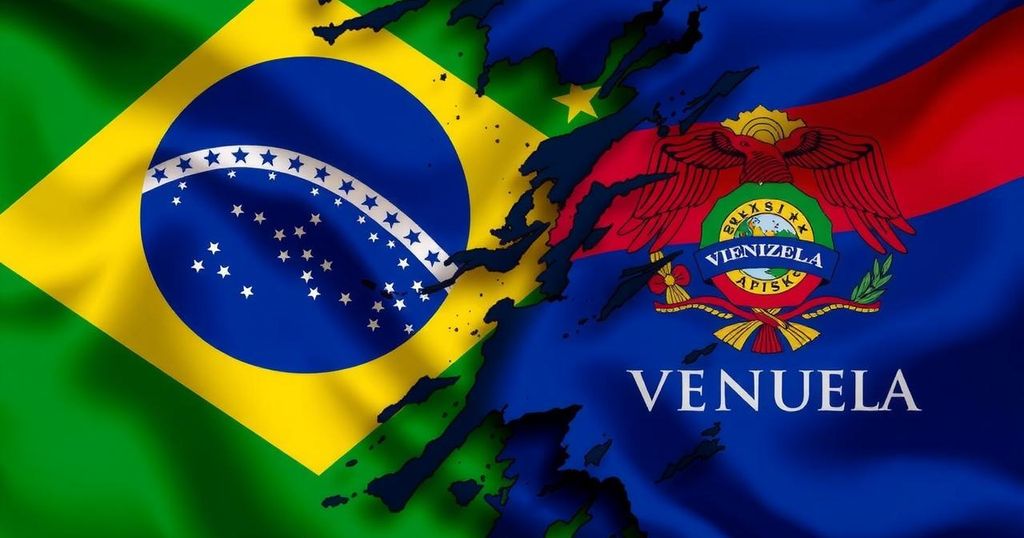Brazil has publicly criticized Venezuela for escalating tensions and engaging in personal attacks against Brazilian officials, particularly in the context of recent comments regarding Venezuela’s bid to join the BRICS bloc and contested election results in July. Diplomatic efforts to ease the situation have been complicated by mutual accusations and a lack of transparency surrounding Venezuela’s electoral processes.
Brazil Expresses Concern Over Rising Tensions with Venezuela In a recent development, the Brazilian government has publicly addressed the escalating tensions with Venezuela, expressing surprise at the increasingly confrontational rhetoric employed by Venezuelan officials. The Brazilian Foreign Ministry issued a statement denouncing the personal attacks directed at its officials, including President Luiz Inácio Lula da Silva, notably surprising given their historically amicable bilateral relations. The strain in relations intensified after a top advisor to President Lula remarked that Brazil did not back Venezuela’s attempt to join the BRICS group during the recent summit in Russia. This comment contributed to an already tense atmosphere stemming from contested outcomes in Venezuela’s presidential elections conducted in July, alongside calls from Brazil for enhanced transparency. In response, the Venezuelan Foreign Ministry summoned the Brazilian chargé d’affaires, Breno Hermann, to convey a strong objection to what it characterized as interventionist remarks from Brazilian officials. Additionally, it accused Celso Amorim, the former Brazilian foreign minister and current advisor to Lula, of acting as a proponent of American interests. Such accusations highlight the sensitivity surrounding Venezuela’s domestic affairs and the perception of external influence. Brazil’s diplomatic response had initially been restrained, aimed at de-escalating the situation. However, this approach shifted following the publication of an image by Venezuelan authorities that made an implicit threat towards Brazil, stating, “If you mess with Venezuela, you wilt.” Despite these tensions, Brazil’s Foreign Ministry reiterated its commitment to non-intervention and respect for Venezuelan sovereignty. The ministry clarified that its concern regarding Venezuela’s electoral processes arises from its role as a witness to the Barbados Agreements intended to establish electoral conditions. Amorim acknowledged the current discomfort between the nations, linking it explicitly to Venezuela’s lack of transparency regarding election results. Accusations from Venezuela’s electoral authorities suggest that they have faced cyber attacks, thus impacting their ability to publish results. In contrast, the opposition alleges significant discrepancies in the election outcomes, which have only heightened existing distrust. Attempts by Brazil, Colombia, and Mexico’s leadership to mediate the election disputes have faltered, leaving Maduro to strengthen his hold on power while sidelining opposition figures. Brazil’s recent opposition to Venezuela’s potential inclusion in the BRICS group further amplifies the rift, with officials claiming that Venezuela no longer fulfills the necessary criteria to be a member. This ongoing diplomatic confrontation reflects broader geopolitical concerns and the impact of local political dynamics within both nations.
The diplomatic relationship between Brazil and Venezuela has historically been characterized by cooperation and shared interests, particularly under left-leaning governments. However, recent events, including disputed election results and critical remarks exchanged between officials, have strained this relationship. The BRICS summit provided a backdrop for these tensions, particularly as Brazil’s stance against Venezuela’s membership exacerbated the situation. The context of domestic politics in Venezuela, the growing authoritarian posture of President Nicolás Maduro, and Brazil’s foreign policy direction under President Lula contribute to the complexities of this diplomatic rift.
In summary, the escalating tensions between Brazil and Venezuela are a manifestation of deep-seated political disagreements and differing approaches to regional governance. Brazil’s critique of Venezuela’s behavior and its refusal to support its BRICS membership reflect broader concerns about electoral integrity and governmental transparency in Venezuela. The diplomatic responses and counter-responses illustrate the fragile nature of bilateral relations, which may continue to face challenges amid ongoing political developments in both nations.
Original Source: abcnews.go.com






